

Canadian Edition Vol. 5, Issue 2 Fall 2022
The World Federalist Movement Canada (WFMC) and the World Citizen Government collectively believe that we are primarily citizens of the world! Our shared values around world citizenship, human rights, and a sustainable Earth are why we are proud to announce our partnership in support of World Citizen Passports.

The World Passport is a meaningful symbol and a powerful tool for the implementation of the fundamental human right of freedom of travel. It is designed to conform to nation state requirements for travel documents. But, it does not indicate the nationality of its bearer, only their birthplace. It is a neutral, apolitical document of identity and potential travel document.
The World Passport has a track record of over 65 years of acceptance. Currently, more than 185 countries have visaed it on a case by case basis. In short, the World Passport represents the one world we all live in!
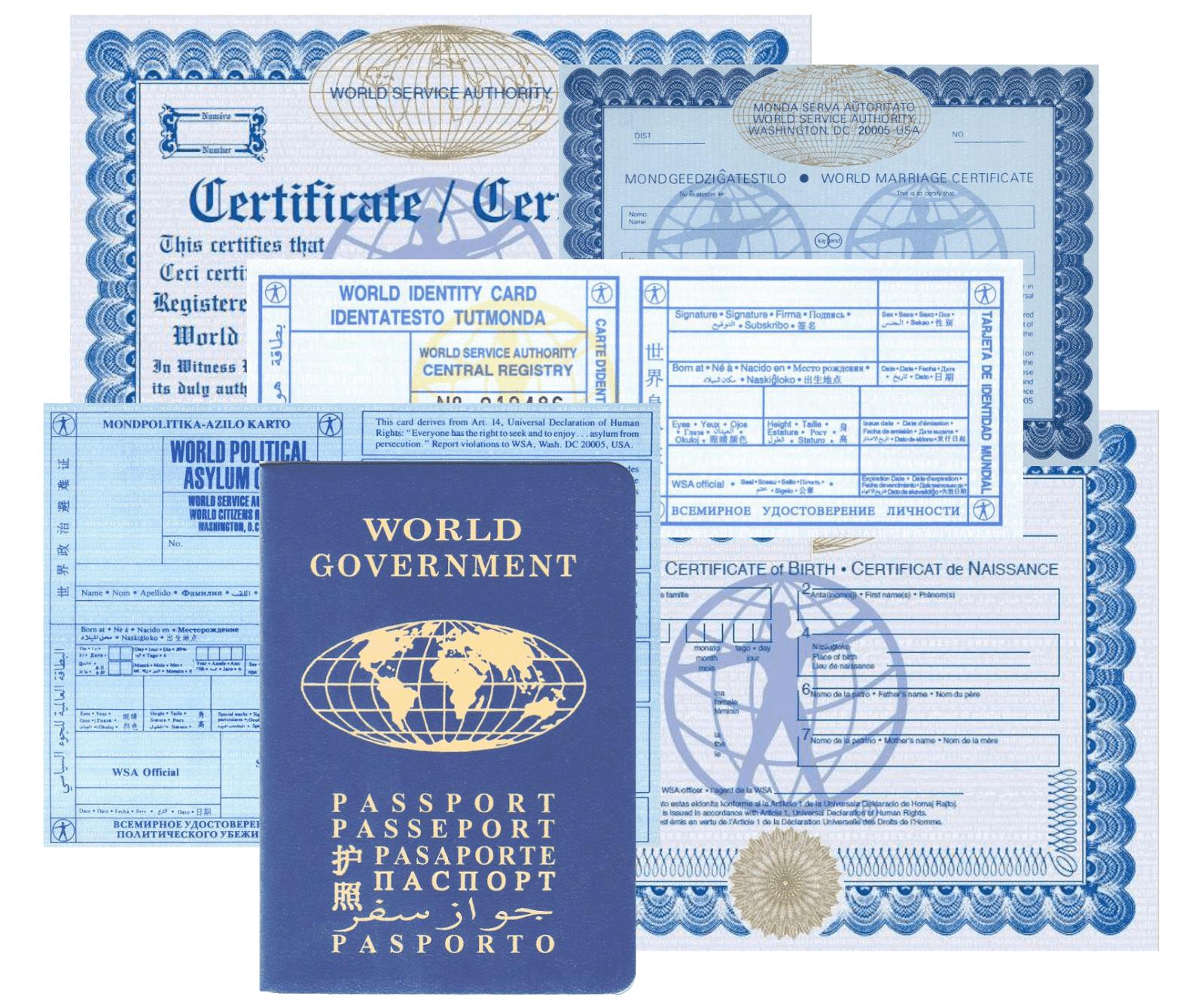

SCAN THE QR CODE TO ORDER YOUR WORLD CITIZEN PASSPORT TODAY!


3@WFMCanada | www.WFMCanada.org | World federalist Movement Canada Published by the World Federalist Movement Canada and Citizens for Global Solutions, non governmental organizations that advocates just and effective global governance through the application of the principles of democratic federalism to world affairs. In This Issue: • An Unusual Relationship: World Federalism and National Populism • Russia’s Don River: History, Conflict, Water and National Security • A New Foundation for a Sustainable World • Ending the Race to the Bottom on Corporate Taxation • Mondial Interviews Amy Oloo, Incoming Executive Director of WFM IGP • War Crimes Are a Feature of the War System • The Birth of Citizens for Global Solutions: Recalling Our Beginnings on the Occasion of Our 75th Anniversary • The General Assembly Jurisdiction to Recommend the Use of Force • The Treaty on the Prohibition of Nuclear Weapons and the World’s Future • It’s Time to End the Suffering • Make Peace Possible With a United Nations Emergency Peace Service • Democracy in Decline? 4 7 9 11 12 16 17 19 24 26 29 33
An Unusual Relationship:
World Federalism and National Populism
By Alex MacIsaac
In an era plagued by the rise of nationalist populists around the world, it is only fair to see the possibility of achieving world federalist objectives through a more pessimistic lens. Worldwide efforts by organizations like World Federalist Movement Canada to establish a United Nations Parliamentary Assembly, for example, seem all but possible because of the need for their establishment by consensus or strong majority across the international community. Other efforts to strengthen global governance too, seem very unlikely in these times as soon as we achieve any progress in one nation state such as a commitment to a greener economy or improving adherence to human rights commitments domestically, another state winds the gears of hope back by dismantling the progress of its previous governments under the helm of a nationalist populist figure.
With early shadows emerging in the 1970s and a visible gain in momentum around the 1990s, we’ve seen nationalist populist movements attack international (and, particularly in Europe, supranational) institutions under the guise of taking back a democracy which had been subverted by a ‘global elite’. These populists view the sovereignty of the nation state as sacred and absolute, rejecting the possibility that any other political unit can provide any representation or democratic channel for its citizens. This familiar characteristic we attribute to
Alex MacIsaac is the Executive Director of the World Federalist Movement Canada. He has founded and played an active role in various student political groups and organizations.
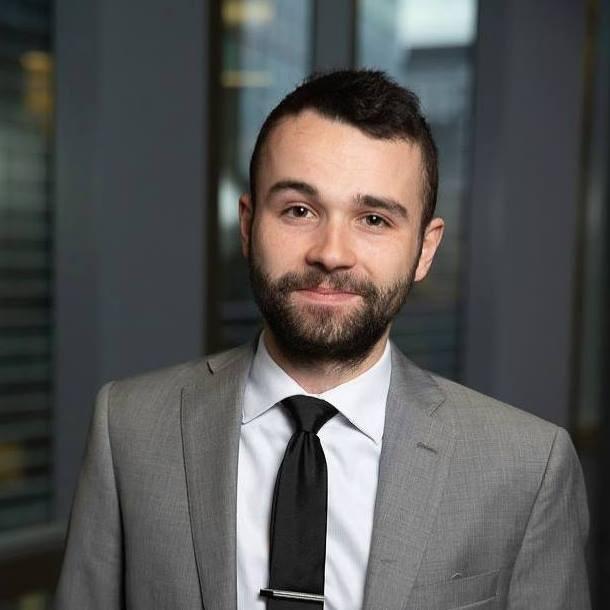
populists takes many different shapes and forms, such as Donald Trump’s attacks on NAFTA in the United States or Viktor Orbán’s opposition to EU policy on refugees and asylum seekers in Hungary. The formation of the European Union has indeed been cited as a leading reason for the rise of populism in the continent. Although the BREXIT movement took the spotlight in the last decade, the United Kingdom was not alone in its convictions to leave the EU. These movements spread across Europe with great force and very close calls, such as the Danish People’s Party or the Swedish Democrats. In this way, the creation and gradual expansion of zones for the free movement of goods and services was also seen as the creation of a ‘global elite.’ They become a target for populists to point to as being responsible for the woes and turbulence of the national economy in times of crises.
Despite being on polar opposites of the scale in terms of the solution prescribed, both
4
world federalist and nationalist populist movements share the same criticism of current international and supranational institutions: they aren’t democratic (or efficient) enough! Various elements of the administration of EU policy on the economy and immigration is indeed distanced from the average citizen of the EU because of the membership of the European Commission being determined by appointment. This appointed body is responsible for submitting the budget proposals, limiting the power of the directly elected European Parliament to merely approve or disapprove them. While the democratic mechanisms embedded in the EU are far more advanced than those leading to the formation of international policy at the UN, they still have their notable weaknesses in terms of giving European citizens a voice. The body of the UN General Assembly is also determined by appointment rather than direct election, with very low standards for recognizing the representative legitimacy of appointed UN ambassadors. Since the appointment comes from the national political unit, some members of the body may have a more direct democratic link than others clearly, any North Korean ambassador’s voice at the UN is far less legitimate than the voice of any Canadian ambassador. But even then, Canadian representation at the UN suffers from the chain of appointments between various political actors domestically, distorting the original interests of voters on global governance topics by throwing in various bureaucratic and national interests along the way. This democratic legitimacy component is a severe blow to aspirations of a General Assembly capable of forming inter-
national (or world) law that would be binding for nation states!
Ideally, we would have some sort of UN Parliamentary Assembly to replace the General Assembly. This would involve creating a direct link between world citizens’ voices and global interests without going through, but in areas that don’t conflict with the global public good still respecting the sovereignty of, the national political unit. In other words, it would in many ways be a universalized version of the EU. World federalists have long advocated for such an endeavour, with minor differences in terms of how the voting groups would be arranged and what types of policy would fall under the global political unit. Most proposals, however, tend to draw voting groups beyond nation states, grouping different regions and taking population considerations into account.
For Canada, we would most likely either be grouped with the US (and maybe Mexico) as a North American voting group, or cut in half so that groupings of Eastern US states and Canadian provinces/territories and groupings of Western states and provinces/territories would each form separate electoral districts.
The problem is that establishing such a system would require near unanimous consensus across the international community so how can we optimistically assert that strengthening global governance is possible as world federalists when populism is on the rise around us (not to mention the possibility of a second Trump administration looms on the horizon of 2024)? For one, each movement fuels the other, so any rise in nationalist populism provides world federalists with argumentative
5
ammunition and proof of the fallacies of absolute national sovereignty neither will disappear because of the other’s rise, no matter how disproportionate the ratio gets. Moreover, note that populists tend to fail in achieving their objectives in the long run, laying the groundwork for world federalist prescriptions for the same ills identified with international institutions in other areas (and over the long run, in the same state that elected the populist figure).
The most important point of this article, however, is that we must acknowledge that world federalist proposals follow a similar logic at their basis as those emerging from nationalist populist movements. It is critical for us, as world federalists, to be able to
realistically engage with supporters of nationalist populist figures and bring them to understand how we share similar concerns. Only then can we make progress as world federalists without fueling nationalist populist sentiments among the general public, and ultimately tip the balance in our favour! Next time you engage with a “Trump supporter” or any right wing populist movement supporter on the topic of foreign affairs, just think to yourself: we have the same concern in mind, and while they may hold different notions in certain areas of political theory, they will better understand that neither of us accept that the international system is sufficiently either efficient or democratic as it stands, and that we have to do something about it together!
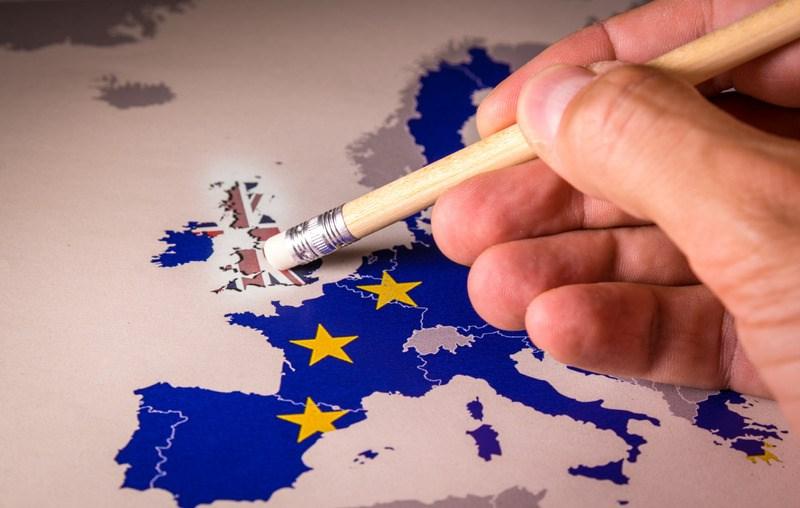
6
Russia s Don River: History, Conflict, Water and National Security
By Blake MacLeod
Now on Russian soil, for millennia the Don river has played an important role in the lives of the people living in the region. There are historical and cultural reasons to connect the river basin in this seemingly unresolvable conflict over the Donbas region. At its closest point, the Don is less than 100km from Ukraine’s South Eastern border at the Sea of Azov. A significant number of its tributaries, the secondary rivers and streams that feed the Don originate deep within Ukrainian territory in the region roughly defined as the Donbas.
In the present era of climate threat stressors, and considering the importance of water to
Blake MacLeod lives in Gibsons BC, and has been a WFMC member for 20 years. World federalism interests include activity related to the UNPA campaign, UN reform, and strengthening the ICC.
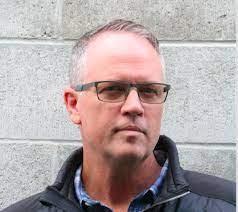
ethnic Russians in the area would be inseparable from the history and essential nature of the Don. In antiquity, the river was seen as the border between Europe and Asia, similar to Constantinople.
A significant proportion of the people living in the Donbas are from somewhere else.
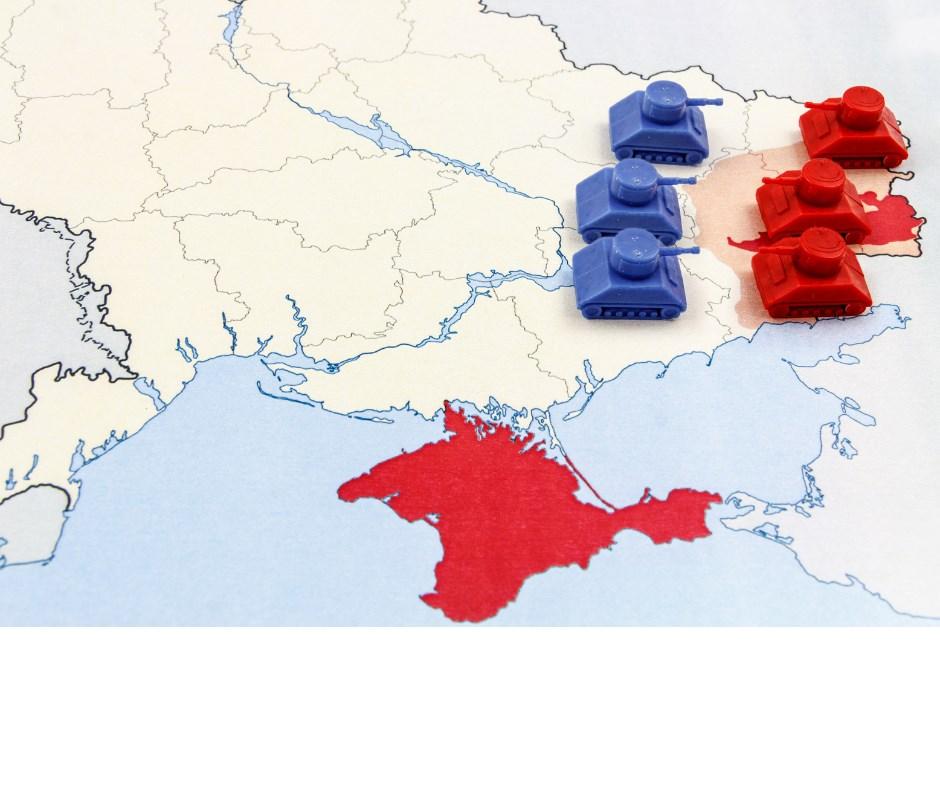
’
7
Earth’s surface. The link to place though, even if only symbolically includes a little known history; one that reaches back to when humans began settling in the area as the Pleistocene ice shield receded circa 10,000 BC.
There is a strong, evidence based argument stemming from independent work done by US and Russian scientists in the years following glasnost, which asserts that a connection exists between the flood myths, including of the biblical Noah, and as told in the Epic of Gilgamesh, and a real life flood event that occurred in the Black Sea. Similar stories are present as cultural tradition within many non Christian cultures, and are supposed to originate from, or were influenced by the same cataclysmic geological event as sea levels were rising as the ice age was ending. The Don, the Dneiper and the Danube emerged in their present forms at that time.
In the book ‘Noah’s Flood’, authors Walter Pitman and William Ryan explain that seabed core samples taken by scientists show that the Black Sea had once been a lake, and previous to that a sea. The writers propose that life for the people living along its shores, and logic and evidence suggest that they did so peacefully, was changed in an historical instant when the rising sea level from a flooding Mediterranean Sea broke through to create the form of the Bosporus strait we see today.
In a matter of weeks, they believe, a massive and growing flume of salt water many times the flow of Niagara Falls changed the much smaller lake to sea, killing the fish, subsuming much of the surrounding land, and destroying the plentiful and peaceful, Eden like way of
life of humans living there.
Geological evidence is married with the anthropological to demonstrate that, in the years following that geological event, all of the European continent was affected by migration and displacement, with fortifications and weapons suddenly becoming much more evident. The evidence supports the theory that a relatively peaceful coexistence changed, as the people fleeing that natural disaster, confronted, warred with, and displaced or were killed by cultural groups of people who had previously also enjoyed a long period of peaceful, stable prosperity, with food and newly available land being plentiful. Today again, climate change, and now this war in Ukraine near the shores of the Black Sea threaten Europe and the world with upheaval once again.
It is proposed too, that that the sudden migration, in its eastward path coincided with the dawning of agriculture in the levant. This would be supported by other theories of how our species naturally transitioned from hunter gatherer societies to agrarian and civic, planting the seeds of the great civilizations, empires and progress to follow.
As for the Don river watershed, its western reaches correspond roughly to the regional borders of the Donbas region. All that water runs away from Ukraine and into Russia, to the Don, eventually spilling into the Sea of Azov near the border between those two countries.
Whether or not he understands the complex history, there is logic in Russian President Vladimir Putin wanting to redefine the shape
8
of Ukraine, to force the release of the Donbas region to full Russian control. There is logic too, that he would want to secure the remaining land encircling the Sea of Azov as a ‘final solution’ to the long simmering and seemingly unsolvable conflict with Ukraine. The war crimes being committed during the civil war, and now during this Russian aggression are an echo of humanity’s ancient past.
Having control over the entirety of the Don watershed, as well as the full length of the canal that brings water from the Dneiper river to farmland in the Crimean peninsula is likely seen by Putin as critical to Russia’s interests. The North Crimean Canal was built in the Soviet era, and so was paid for from the Soviet purse. Controlling the entirety of the Don watershed, as well as the land to the south of the Donbas region would secure Russian agricultural independence over a vast region, provide continuous overland access between Crimea and Russia, and firmly
establish a dominant position in the Black Sea. Without this, it might be argued that Russian insecurity will remain as an impediment to the Europeanizing of Ukraine due to the grip of agitated nationalism in that politically and socially conservative country.
Water and food security are at the very core of human conflict and riparian politics. Increasingly, treaties will be challenged to establish and keep the peace in the age of climate change, especially as the struggles between democratic and nationalist factions heat up. More focus should be paid in the public square to these issues and histories, and there are many examples to cite, including the influential North Crimean Canal, and the long simmering civil war in the Donbas for helping us understand the root causes of conflict. In the process, we will come to better understand ourselves, and our place and responsibility within the human community.
A New Foundation for a Sustainable World
The 7th Generation Initiative is working with the WFMC to stimulate thinking about what a post growth world might be like. Growth has been our goal for so many generations that we know little else, yet logic requires that we stabilize our impacts and reduce the worst of them.
Central to the problem is the measure of standard of living. Making more money so we can buy more stuff is central to the faith of the bottom line. Growing GDP is the same central tenet at the institutional level.
By Mike Nickerson
Mike Nickerson is on the Board of the World Federalist Foundation. He advocates for sustainable world change and is the author of Life, Money and Illusion
Consider how deeply this sits in our culture, in our lives, in the policies of governments. Yet, if this apect of our culture does

9
not lose its power, we are doomed to overshoot Earth’s ability to provide resources and absorb our waste. Collapse would be inevitable.
Such a topic must be approached gently. Blame is out of place. Most World Federalists have spent their lifetimes immersed in the Growth paradigm. Growth was not too serious a problem until recent decades. At today’s scale of activity, however, it is at the root of climate change, species extinction, inflation and many armed conflicts. The expanding volumes of natural resources that we extract and the pollution that we produce, particularly CO2, are creating existential problems. While recognizing that some nations still need to expand their ability to provide basics for their people, globally, an alternative to growth is essential.
Technological solutions have a place. Investing in renewable energy can help, but even a complete shift to their use would leave other aspects of overshoot unaddressed. To reduce resource exploitation and pollution, we need to reduce consumption.
Belt tightening, however, lacks appeal. Pointing out what we can reclaim works better: more time for relationships, appreciation, service, sport, creativity, learning and the like. Because such life based activities are uplifting for those engaged they can be represented by the single word, “fun”. One agreeable route toward a sustainable world can then be expressed as: More Fun, Less Stuff.
Choosing life based activities over consumption based ones is a start. For many of us it is too late to accomplish a thorough shift of life purpose, but to the extent that we give moral support to such change, we will do our part. This project aims to construct a semblance of the new order by collecting the glimmers of insight that arise from considering these thoughts: More fun, less stuff. If the voice of advertising fell silent, what would people want? The greenest dollar is the one not spent, and other materials available at: www.sustainwellbeing.net
To recreate our world, we must understand this fundamental change. Throughout history our growth was limited only by our ability to invest; the Earth seemed limitless. Today, the Earth’s limitations are evident in resource shortages and problems brought on by pollution. It is a very different situation. Think about it. Talk about it. Recognize in your heart that we are at a historic point where the entire human project has to shift from our youthful growth phase to mature responsibility.
Such changes cannot be made quickly. Much thought and inspiration will be needed to fully conceive a mature system. The work to follow could yet enable future generations to live fulfilling lives.
10
“Ifthevoiceofadvertisingfellsilent, whatwouldpeoplewant?”
Ending the Race to the Bottom on Corporate Taxation
By Jane Shevtsov
While globalization has brought many benefits such as economic efficiency, international collaboration and cross cultural exchange it has also come with a number of costs. One is a race to the bottom on corporate taxation. If a multinational corporation doesn’t like its tax rate in a country, it can simply move its money somewhere else, depriving the first country of any taxes at all. This creates an incentive to push taxes lower and lower: Average corporate taxes have declined from about 40% in the 1980s to about 20% in recent years, depriving governments of funds needed to tackle social and environmental problems.
An important step has been taken toward ending this dynamic. The 136 countries in the Organization for Economic Cooperation and Development (OECD), who are responsible for 94% of global economic activity, have agreed to a “global minimum tax.” According to this concept, all corporations with at least 750 million euros in global sales would be taxed at a rate of at least 15%. Income will be taxed where it is earned, so if a company like Microsoft has customers in, say, France, its revenue from those customers will be taxed by
Jane Shevtsov is an ecologist and board member of the Citizens for Global Solutions. She teaches math for life sciences at the University of California, Los Angeles.

France. Moreover, if a country where the corporation does business doesn’t tax it at a rate of at least 15%, its home country can add “top up tax” to make up the difference. This clever arrangement removes the incentive for lowering taxes.
The (almost) global minimum tax agreement is not without its weaknesses. Certain sectors, including finance and resource extraction, are for some reason exempt. Moreover, actually implementing the agreement will require countries to change their tax laws. Multinationals will undoubtedly lobby against such changes in the United States and elsewhere. It’s worth keeping an eye on and supporting the ratification of this agreement, which is a step toward reigning in global economic anarchy.

11
Mondial Interviews Amy Oloo Incoming
Executive Director of WFM-IGP
Mondial: What are your first thoughts and impressions upon entering into your new position as the executive director of WFM IGP?
Amy: I’m incredibly honored by the opportunity to take on this role, but I’m also hyper aware of the enormous responsibility that comes with the position. My mind is also racing with all the different ideas I’d like to implement at the WFM-IGP, but I’m also very cognizant of the need to prioritize. Ultimately, I believe the WFM-IGP has tremendous potential to make a positive impact and I’m incredibly grateful for the opportunity to tap into this potential.
Mondial: Share with us what challenges you see ahead for WFM IGP. What are its most important needs and issues? What are its greatest opportunities?
Amy: WFM IGP has been navigating a period of transition for the last year or so. We’ve had to go back to the drawing board to re-establish our programs, focus, policies, and operations. This effort has been made more difficult because we do not have extensive resources to apply to this process. Our current organizational needs include working toward a clear and unified vision and mission, developing programs that reflect these decisions, and obtaining the necessary financial and human resources. The organization’s challenges are also its greatest opportunity, since returning to the drawing board gives the WFM an opportunity to build back better and stronger.
Mondial: As you see it, what are the key priorities right now for the global movement for world federation? What are its main issues and needs at this time?
Amy: I believe our key priority is unity and inclusivity whereby young federalists, federalists from the global south, and other marginalized voices who support our vision would be invited to participate in federalist platforms and engage in discourse on various global governance issues. A challenge to our vision of world federation is, of course, the growing support for the populist-right in the West and subsequent nationalism, as well as the North-South divide on issues such as climate change.
12

13
Mondial: Do you envision that the WFM is the spearhead of the world movement? Or is it more important to build a broad coalition with other NGOs focused on global governance?
Amy: I envision the WFM as the spearhead of the federalist movement. However, there may be NGOs focused on various global governance issues that do not necessarily subscribe to the ideals of federalism as outlined in the Montreaux Declaration (i.e. the WFM’s founding document); in such an instance the idea of joining with them in a separate broad coalition of NGOs focused on global governance makes sense. The WFM and members of such a coalition would ultimately share many of the same goals, and thus the pursuit of pragmatic partnerships (where appropriate) would be the best course of action.
Mondial: What is your current view of role the United Nations and its agencies? Do you envision focusing on UN reform as your priority, or do you feel it is more important to aim for building a new global governance organization from the ground up?
Amy: The UN and its agencies have a key role in maintaining peace and security, as well as promoting international cooperation in solving economic, social, and humanitarian issues. The organization has been successful in achieving these things to an extent, but its structure has weaknesses, particularly in regard to the rules governing the Security Council. This has meant that the world has been at the mercy of the P5 countries, who selectively apply the veto power to safeguard their interests ahead of any social or humanitarian implications. There is also insufficient representation of civil society voices in decision-making, which limits the organization’s vision and effectiveness. With this in mind, I would say that UN reform is way overdue and can perhaps help the organization better achieve the purposes outlined in its charter. Even so, it’s difficult to envision a situation in which the permanent Security Council members would yield their veto power that has given them immense privilege in shaping the current international order to their benefit. Improving on current global governance institutions, and perhaps building new ones, seems like the best way forward because such efforts can draw lessons from the UN’s own structural inequalities and failures, and at the same time seek to promote more inclusive and effective platforms for global governance.
14
Mondial: You are a rising leader of a new generation. What is your vision for the world we need to create during your lifetime?
Amy: As I indicated above, my ideal world is one where youth, women, representatives from the global south, and other marginalized voices are given an equal seat at the table in finding solutions to the world’s challenges. I envision a world in which our common good is prioritized ahead of any nationalist or capitalist goals, and where people who actively work against this common good, for instance as it pertains to environmental protection, are held to account.
Mondial:If you like, share something additional about yourself and your new role in the movement for democratic world federation, or about the current world situation.

Amy: As a feminist and as a Pan-African that is a champion for inclusivity, I am really grateful to be taking on the executive director role. I believe that a seat at the table for every interest group is what a democratic federation requires and what the world at large needs.
Mondial is published twice annually by the World Federalists. Editorial production is undertaken jointly by the international secretariat of the World Federalist Movement Institute for Global Policy and the WFM IGP member organization, World Federalist Movement Canada. ISSN number: 1488 612X
Mondial’s editorial working group: Bob Flax, Peter Orvetti, Donna Park, Erica Wilson, and Alex MacIsaac. Material is not copyrighted. Submissions are welcomed. Publication in Canada is also supported by the World Federalist Foundation, a Canada
Revenue Agency registered charitable organization (reg. #: 123998957RR0001).
WFM – Canada PO Box 4022, Postal Station E, Ottawa ON K1S 5B1 wfmcanada.org +1 (613) 232 0647
15
War Crimes Are a Feature of the War System
By Byron Belitsos
The Ukraine conflict has been a grim reminder that barbaric warfare is too often the result of our flawed international security system or, what world federalists often call the “war system” for short. While Russia’s wanton targeting of civilians may justifiably be called a war crime, Wikipedia’s list of ongoing conflicts reminds us that numerous other brutal wars are also under way, and, sad to say, additional mass atrocities on the scale of war crimes are being committed across the planet. Painful as it is to face, alleged crimes of war took place in Yemen with U.S. complicity and funding, and colossal violations were recently committed because of U.S. aggression in Afghanistan and Iraq. One must add to this list alleged war crimes and mass atrocities by Israel against Palestinians, plus the actual cases now being investigated by the International Criminal Court in Sudan, the Congo, Myramar, Libya, and a half dozen others countries around the globe. And thus, while war crimes accusations against Russia now make headlines, it is our solemn task to point to a larger pattern of crimes of violence generated by the war system. War making, international aggression, and war profiteering have never been an anomaly in human history, according to scholars. “The historical record,” writes Professor Marc Pilisuk, author of the masterwork The Hidden Structure of Violence (2015), “indicates that a war is occurring
Belitsos is the managing editor of World Citizen, the monthly publication of Citizens for Global Solutions. He is coauthor of One World Democracy: A Progressive Vision for Enforceable Global Law
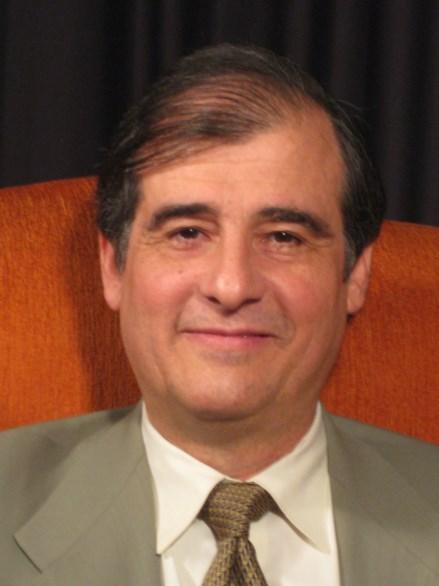
somewhere in the world far more often than periods of peace.” In other words, the war system is inexorable in all places and times, and this includes our own era. In recent centuries, the need to brandish ever more lethal weaponry in order to win wars of annihilation in the name of “self defense” is a given for national leaders on all continents. The astonishing extent of warfare deaths, even in recent decades, is illustrated in this startling map of war fatalities spread out across the world since 1975, yielding a tally of over 2,700,000 war deaths. All of this slaughter has occurred in the lifetimes of many of us.
The upshot should be clear. Wars that end in terrible destruction are not just happenstance. They don’t just occur because of a few ambitious or mentally deranged leaders. War is systemic, and war crimes are a central feature of the system. War is the court of last resort in a world of international anarchy, where the law of force eclipses the force of law. Nations must
16
be prepared to defended themselves against armed aggression at any time or risk perishing. And this condition persists because we don’t yet have a legal system that compels nations to resolve their disputes non violently.
Because of the perverse inner logic of the war system, the ability to destroy the enemy’s war machine and the willingness to incur massive civilian deaths on their side in the process, is the very basis of protecting one’s own population. Possessing overwhelming firepower, including nuclear weapons, is key to
maintaining a credible deterrent to attack. And let’s not forget that such expenditures cost nearly $2 trillion a year worldwide, wasting resources that could go very far toward solving other pressing problems. And in a real sense this grim situation is nobody’s fault, for the logic of the system drives nation states, or military alliances of nations, toward immoral and criminal behavior. And, in the absence of the enforceable global law that CGS has stood for since 1947, warmongers everywhere will continue to get away with their crimes.
The Birth of Citizens for Global Solutions: Recalling Our Beginnings on the Occasion of Our 75th Anniversary
By Bob Flax
In the immediate aftermath of World War II, the most destructive war in human history, a mass movement developed among people in the United States and other lands who were determined to create the kind of united world that could avert future human catastrophe. Among their leaders were the acclaimed physicist Albert Einstein, Nuremberg war crimes prosecutor Benjamin Ferencz, presidential advisor Grenville Clark, and feminist Rosika Schwimmer.
In February 1947, during the final hours of one of the greatest snowstorms on the East Coast, 327 delegates representing several world federalist organizations from across the country gathered in Asheville, North Carolina, to launch one of the most significant peace
Bob Flax, Ph.D. is executive director of Citizens for Global Solutions and an adjunct faculty member in the Transformative Social Change Program at Saybrook University.
efforts of the 20th century. Among those present were Norman Cousins, later World Federalist Association president and editor of the Saturday Review; Thomas K. Finletter, later President Truman’s secretary of the Air Force; Florence Harriman, former U.S. ambassador to Norway; Cord Meyer, Jr., later United World Federalist president and CIA official; and Harris Wofford, civil rights activist and later U.S. senator from Pennsylvania.

17
Each of the organizations was created by individuals who recognized that the growing horror and destruction of modern warfare could only be halted by a world organization with the power to deal with aggressors and the buildup of armaments. The urgency was intensified by the dropping of the atomic bomb, and thousands responded in recognition of the need to prevent future devastation.
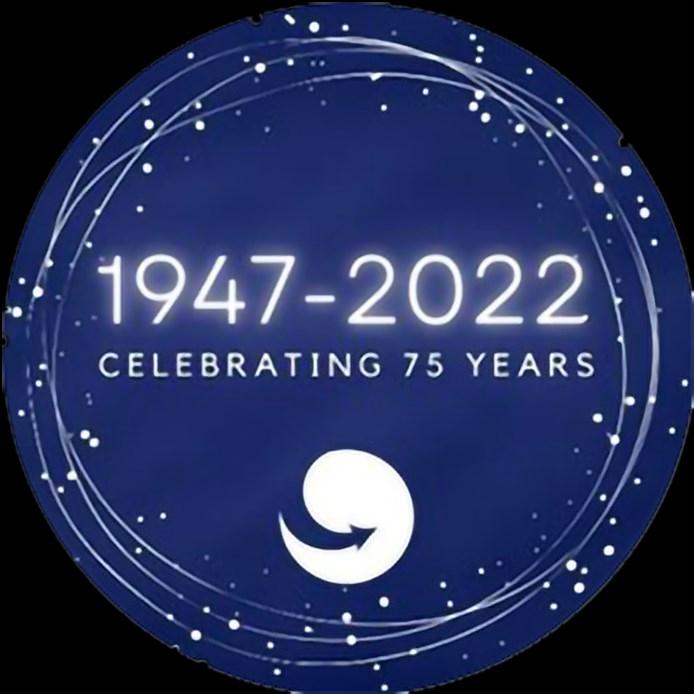
Their declaration of purpose, adopted on November 2, 1947, stated that peace “is not merely the absence of war, but the presence of justice, of law, of order insured, of the government and the institutions of government; that world peace can be created and maintained only under a world federal government, universal and strong enough to prevent armed conflict between nations, and having direct jurisdiction over the individual in those matters within its authority.”
They concluded that “while endorsing the efforts of the United Nations to bring about a world community favorable to peace, we will
work to create a world federal government with authority to enact, interpret and enforce world law adequate to maintain peace.”
With those words, the United World Federalists was born. In the 75 years that followed, the organization changed its name several times (it is now Citizens for Global Solutions) and served as the main U.S. branch of a global body, the World Federalist Movement. It worked on such campaigns as the Partial Test Ban treaty which prohibited the testing of nuclear weapons except those conducted underground (1963), the nuclear non proliferation treaty (1968), the anti ballistic missile treaty (1972), the establishment of the International Criminal Court (1998), and the acceptance by all UN member nations of the Responsibility to Protect (2005) a commitment to protect all populations from mass atrocities and human rights violations.
Although these were steps in the right direction, today’s crises necessitate further action toward global governance. The lethality of warfare has become unimaginable, dwarfing the destructiveness of the bombs dropped on Hiroshima and Nagasaki; the triple planetary crises of climate change, biodiversity loss, and pollution are now an existential threat, as we move toward irreversible planetary tipping points; and we are two years into a pandemic that has claimed over five million lives worldwide and nearly one million in the United States.
Our current system of 195 sovereign nations, each pursuing its own self interest while bound together in a confederation through the United Nations, has demonstrated its
18
inability to solve the greatest problems of our time. As our organization’s founders clearly stated 75 years ago, humanity needs a democratically elected, global federal government with enforceable world law. More of the same just won’t do. Through our outreach efforts and public education
programs, Citizens for Global Solutions continues to work toward this goal. At the same time, we advocate for our more immediate objectives of strengthening and democratizing the United Nations, global institutions, and our current system of international law.
The General Assembly Jurisdiction to Recommend the Use of Force
By Bill Pearce
The General Assembly Jurisdiction to Recommend Measures to Address Peace and Security Situations
This paper attempts to summarize the powers of the General Assembly (GA) to make recommendations on matters of international peace and security including possible use of force.
Role of GA with respect to Peace and Security
The United Nations Charter is the operative document which defines the powers of both the Security Council (SC) and the GA. Art.24 (1) provides that UN Members confer on the SC “primary responsibility” for the maintenance of peace and security. The GA’s responsibility to maintain peace and security is secondary.
Art. 24(2) says that in discharging “these duties” i.e. the responsibility to maintain peace and security, the SC has specific powers in the Charter including Chapter VII (dealing with “Action” with respect to threats to peace or breaches of the peace including acts of
Bill Pearce QC was called to the bar in 1968 and has had a varied career as a barrister. He is currently retired and living in Victoria while continuing to serve as president for our Victoria chapter.

aggression ) which provides in Art. 39 that the SC shall determine the existence of any threat to the peace and make recommendations or decide what measures shall be taken in accordance with Arts. 41 (referencing measures not including the use of armed force) and 42 (which deals with use of armed forces to maintain or restore international peace and security).
Article 14 provides that subject to Article 12, the GA “may recommend measures for the peaceful adjustment of any situation regardless of origin” including violations of the purposes and principles of the UN Charter. In the 1962 Certain Expenses Advisory Opinion of the ICJ they said the word “measures” in Art.14 “implies some
19
kind of action”, and the “only limitation” which Art.14 imposes on the GA is the restriction in Art.12 namely that the Assembly should not recommend measures “while the Security Council is dealing with the same matter unless the Security Council requests it to do so”. This is a very broad discretion. The restriction is only temporal in nature and even that restriction seems to have melted away following the 2004 Wall Advisory Opinion of the ICJ when they reviewed the practice associated with that section. They first of all noted that initially the GA would not make recommendations “while the matter remained on the council’s agenda” then by 1963 it evolved to mean the GA would not act when the SC was “exercising the functions at this moment”. However the ICJ in Wall went further to note ‘there has been an increasing tendency over time for the General Assembly and the Security Council to deal in parallel with the same matter” which “accepted practice…is consistent with Article 12”, leaving in doubt as to the meaning of Article 12.
The GAs jurisdiction may also be invoked as contemplated in Article 12(2) and Art. 11(2) if the GA receives notification from the Secretary General that the SC has ceased "to deal with such matters”. Further, provided the SC is not dealing with the matter the GA could also deal with the matter if brought before it by any Member of the UN (Art. 11(2) and Art.35(1) & (3)) or even by a state not a Member of the UN (Art.35(2)).
There is another procedure outlined in GA Resolution 377 1950, Uniting for peace (U4P),
which is often invoked when the SC is paralyzed from fulfilling its responsibilities by reason of the exercise of the veto power of one or more of the permanent members. The U4P was invoked in the recent case of Russia’s aggression in Ukraine. Let us look now at how the Ukraine matter came before the GA.
On February 24th Russian troops entered Ukraine and Kyiv was bombed. On February the 25th 2022 a draft resolution was put to a vote at an emergency session of the SC and supported by 11 members but vetoed by Russia. On February 27 the SC passed a resolution after taking into account the lack of unanimity of its permanent members “has prevented it from exercising its primary responsibility for the maintenance of international peace and security” (using the operative words of the U4P resolution) deciding “to call an emergency session of the General Assembly to examine the question” of aggression against Ukraine.
On March 1st the GA acted upon the request of the SC and passed a resolution almost identical to the draft SC resolution which failed. The resolution ends by adjourning the session to a date to be set by the President. Since Russia has failed to follow the directions of the resolution, the GA is now in a position, should it choose to do so, to recommend to its Members to take measures to enforce its demands pursuant to its power under Article 14. Those measures can include sanctions, embargoes, the suspension of diplomatic relations or the use of force.
20
Limits to GA Recommendations for Use of Force
Once you get over the hurdle as to when the GA can assume responsibility, we have to look at what the GA can or cannot do given the differences between the powers vested in the SC and the GA.
When use of force is contemplated the possible application of Art. 11(2) has to be considered. It says that the GA may make recommendations to the Members or to the SC, or both, on a matter relating to the maintenance of peace and security except that where on any question “action is necessary” it “shall be referred to the SC either… before of the SC under chapter VII (and as indicated in the title to that Chapter) and thus Art. 11(2) is inapplicable to GA recommendations it wishes to make including those that recommend the use of force.
When the Charter was created Chapter VII contemplated the creation of a permanent UN force which could be deployed by the SC, not the GA, and allow the SC to order directly the forces assigned to them to take whatever measures were considered appropriate. That force was never created. Further, and most importantly, all Members are required to join in and render mutual assistance in carrying out decided measures of the SC (Arts. 48 and 49). This requirement does not apply to deci-

21
In summary, if the GA needs to be able to require state members to provide military assistance to carry out desired measures it must refer the matter to the SC to implement the measure. That said, it is my observation that the consequence to a member state for disobeying a resolution of the SC calling upon it to contribute military forces to address a situation is expulsion from the UN pursuant to Article 6 upon evidence showing the member “persistently” violated the principle in Article 2 para 2 that all Members fulfill the obligations assumed by them in the Charter ( which would include Article 48). I doubt that threat would be a large consideration in a state’s decision to contribute forces or otherwise.
Another important limitation on the GA’s power to recommend measures that include the use of force is that it must be done in a manner that does not create circumstances that would conflict with the requirement in Art.2(4) for all “Members” to refrain from the threat or use of force against the territorial integrity or political independence of any state”. In a situation of aggression such as we have in Ukraine where the invaded state would welcome any assistance, this poses no hurdle because Art. 51 justifies the use of force where it is employed as part of a “collective self defence”, but where it becomes problematic is in a situation where a UN created force is needed, not in a situation of self defence, but in a situation where such a force is required to maintain the peace or to secure a peace where atrocity crimes (genocide, war crimes, ethnic cleansing, and
crimes against humanity) are being committed, invoking the UN’s responsibility to protect (R2P).
While it is clear that the SC has the power to create such forces, from my reading of the Charter the GA is not empowered to create a UN force to carry out any mission (be it self defence, peacekeeping or protection of citizens). The GA only has power to “recommend” to the SC or UN Members to take desired measures.
However, Rebecca Barber, in A Survey of the General Assembly’s Competence to make Recommendations on Matters of International Peace and Security tells us that the GA has intervened in no less than 4 occasions to either create a UN force or in the case of Korea to carry on with an established UN force created by the SC with an expanded mandate.
One of the cases was the Suez crisis where the GA, thanks to former PM Lester B. Pearson ,created the first UN peacekeeping force with an initial mandate to ‘secure and maintain the peace’. Barber notes that all four cases shared a number of commonalities, a paralysed SC, a referral to the GA either explicitly, invoking U4Por using U4P language, or, implicitly by removing the matter from its agenda, and more importantly the consent of the parties affected.
It would appear that the GA has stepped up to the plate in times of need knowing that if its actions were challenged at the ICJ they might not past muster but not concerned about such possibilities knowing that the
22
tions has not delineated either the legal or the substantive basis for the intervention and are often “not consistent and are not solely guided by the Charter”, and that “the Assembly’s practice supports the widest possible interpretation of the Assembly’s powers”.
GA has not been hesitant to act when the SC is not up to the task. Going forward, all is not lost when the SC fails to act. Consideration of GA measures to address such situations should be front and center more often.

23
The Treaty on the Prohibition of Nuclear Weapons and the World’s Future
By Lawrence S. Wittner
This past January marked the first anniversary of the entry into force of the UN Treaty on the Prohibition of Nuclear Weapons. This momentous international agreement the result of a lengthy struggle by the International Campaign to Abolish Nuclear Weapons (ICAN) and by many non nuclear nations bans developing, testing, producing, acquiring, possessing, stockpiling, and threatening to use nuclear weapons. Adopted by an overwhelming vote of the official representatives of the world’s nations at a UN conference in July 2017, the treaty was subsequently signed by 86 nations and on January 22, 2021 became international law.
Right from the start, the world’s nine nuclear powers the United States, Russia, China, Britain, France, Israel, India, Pakistan, and North Korea expressed their opposition to such a treaty. They pressed other nations to boycott the crucial 2017 UN conference and refused to attend it. Indeed, three of them the United States, Britain, and France issued a statement declaring that they would never ratify the treaty. Not surprisingly, none of the nuclear powers has signed the agreement or indicated any sympathy for it. Even so, the Treaty has acquired considerable momentum over the past year. During that time, an additional nine nations ratified it, thus becoming parties to the treaty. And dozens more, having signed it, are expected to ratify it
Dr. Lawrence S. Wittner is professor of history emeritus at SUNY/Albany and the author of Confronting the Bomb (Stanford University Press).

in the near future. Furthermore, the governments of two NATO nations, Norway and Germany, have broken free from the U.S. government’s oppositional stance to the treaty and agreed to attend the first meeting of the countries that are parties to it.
In nations where public opinion on the treaty has been examined, the international agreement enjoys considerable support. YouGov opinion polls in five NATO countries in Europe show overwhelming backing and very little opposition, with the same true in Iceland, another NATO participant. Polling has also revealed large majorities in favor of the treaty in Japan, Canada, and Australia.
In the United States, where most of the mainstream communications media have not deigned to mention the treaty, it remains a well kept secret. Even so, although a 2019 YouGov poll about it drew a large “Don’t Know” response, treaty support still outweighed opposition by 49 to 32 percent. Moreover, when the U.S. Conference of Mayors, representing 1,400 U.S. cities, met in
24
August 2021, the gathering unanimously approved a resolution praising the Treaty. Meanwhile, a variety of institutions, recognizing that nuclear weapons are now illegal under international law, have begun to change their investment policies. In September 2021, Lansforsakringar, a Swedish insurance company with assets of over $46 billion, cited the treaty as a major reason to avoid investing in companies producing nuclear weapons. In December, the New York City Council adopted a resolution telling the city comptroller to remove investments from the city’s $250 billion pension fund from companies producing or maintaining these weapons of mass destruction. According to ICAN, 127 financial institutions stopped investing in nuclear weapons companies during 2021.

Despite this impressive display of respect for the landmark agreement, the nine nuclear powers have not only continued to oppose it, but have accelerated their nuclear arms race. Having cast off the constraints of most nuclear arms control and disarmament agreements of the past, they are all busy either developing or deploying new nuclear weapons systems or have announced their intention to do so.
In this process of nuclear “modernization,” as it is politely termed, they are building newly designed nuclear weapons of increasing accuracy and efficiency. These include hypersonic missiles, which travel at five times the speed of sound and are better able than their predecessors to evade missile defenses. Reportedly, hypersonic missiles have already been developed by Russia and China. The United States
25
is currently scrambling to build them, as well, with the usual corporate weapons contractors eager to oblige.
When it comes to “modernization” of its entire nuclear weapons complex, the U.S. government probably has the lead. During the Obama administration, it embarked on a massive project designed to refurbish U.S. nuclear production facilities, enhance existing nuclear weapons, and build new ones. This enormous nuclear venture accelerated during the Trump administration and continues today, with a total cost estimated to ultimately top $1.5 trillion.
The current build up of their nuclear arsenals is particularly dangerous at this time of rising conflict among them. The U.S. and Russian governments almost certainly don’t want a
nuclear war over Ukraine, but they could easily slip into one. The same is true in the case of the heightening confrontation between the Chinese and U.S. governments over Taiwan and the islands in the South China Sea. And what will happen when nuclear armed India and nuclear armed Pakistan fight yet another war, or when nuclear armed national leaders like Kim Jong un and a possibly reelected Donald Trump start trading insults again about their countries’ nuclear might?
The most promising course of action for people interested in human survival might well lie in a popular mobilization to compel the nuclear nations to accept the Treaty on the Prohibition of Nuclear Weapons and, more broadly, to accept a restrained role in a cooperatively governed world.
It’s Time to End the Suffering
By Sovaida Ma’ani Ewing
Our world is being crushed under a torrent of cascading crises. In the past two years alone, we have been buffeted by the twin crises of a global pandemic and worldwide economic recession, and on top of this we face the increasing ravages of climate change. Just as we thought things couldn’t get worse, we find ourselves in the grip of the war in Ukraine.
It beggars belief that our 21st century world allows one leader to hold the entire world hostage, given that humanity’s unprecedented interconnectedness and interdependence has made it a single body with its multiple nations serving as its limbs and organs. Just as it
Sovaida Ma’ani Ewing is an author, speaker, lawyer, founding director of the Center for Peace and Global Governance, and member of the Board of Directors of Citizens for Global Solutions Education Fund.
makes no sense for us to stand back and allow malignancy in one part of the body to magically heal itself, so too it makes no sense for the community of nations to abdicate responsibility by standing by as one nation is ravaged by war. For, in the end, the well being of the

26
world is dependent on the well being of its constituent nations and vice versa. The Ukraine war provides us with ample evidence of this principle. In addition to a massive refugee crisis, it has triggered a global shortage of energy resulting in a spike in the price of oil and gas. Inflation is running rampant, decimating economies in its wake, and the UN estimates that between 7.6 and 13.1 million will go hungry as we enter the grips of a global food crisis caused by shortages of wheat, barley, corn and fertilizer, products that in normal times are supplied in very large quantities from Ukraine and Russia. Last but not least, it is increasingly evident that the risks of miscalculation in this war could lead to a global war that could well include the use of nuclear weapons.
Any use of nuclear weapons will be catastrophic. Experts tell us that even a limited nuclear war (confined by geography and duration) would be likely to result in 10 years of no summer, destroying crops and resulting in one billion people starving. The stakes are unacceptably high, and the time for apathy is over. The international community can no longer abdicate its responsibility. We the world’s citizens must do our part and urge our leaders to act with ceaseless energy to build a system of global governance fit to serve humanity’s needs at this stage in its collective growth that is founded on two insights: firstly, the fundamental interests of all nations are fused, and it is therefore futile to continue attempting to maintain an equilibrium of competing interests; secondly the moral obligation enshrined in globally accepted princi-
ples like the Responsibility to Protect are meaningless if there is no institution to embody and apply them.
Our first step should be to press our leaders to enter into a global agreement creating a viable system of collective security. This agreement would limit the amount of arms each nation can possess to what is necessary to maintain order within its borders. All other weapons must be destroyed under a system of international supervision to be devised. Similarly, all nuclear weapons must be eliminated in phases over a set period of time. Nations must agree to forego war as a tool of international relations. Most importantly, they must agree that if any one nation breaches any of the provisions of this agreement thereby threatening the world’s peace, all would arise against it and bring it to heel. Ultimately, this is the only untried yet effective way to stand up to a bully on the international playground.
It should immediately be apparent that such a rule based system of collective security is useless unless backed by a robust system of enforcement, which is why the second action step has to be the establishment of an international standing force made up of troops and equipment contributed by all the nations of the world. This force would function at the behest of a global legislature directly elected by the peoples of the world and in accordance with predetermined rules laying out the conditions for its use. Its primary aim should be to maintain or restore peace for example in cases of proven genocide, or unlawful territorial aggression, or illicit nuclear weapons programs. It could also be used to assist
27
populations in times of natural disaster like earthquakes, tsunamis, or pandemics.
By taking the steps proposed here we will ensure that the suffering of the people of Ukraine and many others like them, whether in Yemen, Tigray, Sudan, Syria, or Myanmar, to name a few, will not have been for naught. We will have responded to the observation and call of President Volodymyr Zelenskyy in his address to the U.S. Congress: “We need to
create new tools to respond quickly and stop the war. Today, the world does not have such tools.” He went on to say the institutions we created in the past don’t work and “so we need new ones, new institutions.” Let us heed his words and build a viable system of collective security and a standing international force to ensure that the world will never again experience such horror.
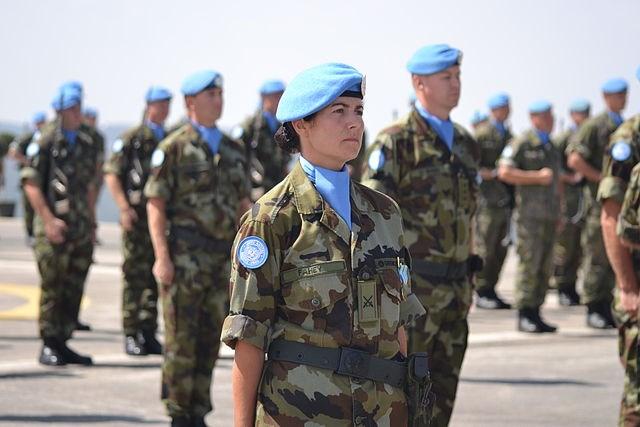
28
Make Peace Possible With a
United Nations Emergency Peace Service
By Peter Langille
President Dwight Eisenhower’s farewell address in 1961 warned us about the existence of a military industrial complex that exerts “unwarranted influence” and displays “the potential for the disastrous rise of misplaced power.” Shortly after that famous speech we learned for the first time about a viable alternative: In a landmark document called “Freedom From War,” President John F. Kennedy and officials in the State Department determined that preventing war and encouraging wider disarmament “can only be achieved” by a more effective UN and a “UN Peace Force” to safeguard legitimate interests. This approach is still available to us today. Kennedy’s declaration has evolved to become a proposal for a United Nations Emergency Peace Service (UNEPS) a more sophisticated option than Kennedy’s early idea of a UN standing force. Our dysfunctional, war prone system no longer needs to be so anarchic and destructive, nor does it have to be ruled and selectively enforced by the strongest military powers or by the Western military alliance, NATO.
The UNEPS concept is effectively a “UN 911 first responder” for complex emergencies. If it were to come into being, the UN would finally have the capacity to address four of its tougher assigned tasks: (1) to help prevent armed conflict and genocide, (2) protect civilians at extreme risk, (3) ensure prompt
Dr. H. Peter Langille specializes in peace and conflict studies, United Nations peace operations, conflict resolution and mediation, and independent analysis of defense and security policy.

start up of demanding peace operations, and (4) provide for pressing human needs where others either cannot or will not.
What’s distinctly different in this idea? The UNEPS proposal calls for a permanent, standing, and integrated UN formation. The force would be highly trained and well equipped, and ready for immediate deployment upon authorization of the UN Security Council. This service would be multidimensional (including civilians, police, and military) and multifunctional that is, capable of diverse assignments and equipped with specialized skills for handling security, humanitarian, health, and environmental crises.
As an integrated first responder, a UNEPS is not limited to simply stopping direct violence; its work also extends from quick impact to long term projects of various kinds. A UNEPS would include specialists in conflict resolution and mediation, human rights monitors and educators, peace building advisory units, and medical teams, giving it a far better prospect of addressing and solving any
29
unfolding crisis.
A UNEPS need not be overly large. It should be composed of 13,500 dedicated professionals who are recruited, selected, trained, and employed by the UN, and chosen so as to ensure regional and gender equitable representation. Ideally, the force would be located at a designated UN base under an operational headquarters and should also include two mobile mission headquarters at sufficient strength to operate in high threat environments. Yet, unlike previous proposals, I believe that a UNEPS should complement existing UN arrangements.
Three further advantages of the UNEPS concept stand out.
1. First, overall UN peace operations would improve with such a standing firstresponder. Instead of taking six months to a year or more to deploy contingents from participating nations, the UN would have its own rapid and reliable standing peace service able to quickly address a wide array of emergencies. That is, rather than the current UN focus on “post conflict stabilization” that deploys after the fighting stops much like a police force that intervenes after a killing or rape has concluded a UNEPS is designed to provide an immediate preventive response within days.
Prevention and protection are far more manageable tasks when a force arrives promptly before conflicts escalate and spread into worse violence. In turn, there should be less need for later, larger, longer, and far more costly operations. In other words, an ounce of prevention might be well worth a ton of cure.
Any preventive system works best as a deterrent, that is, when it seldom has to intervene to stem a crisis. As with any policing or defense effort, it’s best to be known to have the credible means to stop aggressors. In other words, a standing UNEPS would always convey a legitimate presence while still being ready 24/7 to discourage violence. Its deployable elements should be sufficient to deter most if not all belligerents and at the same time be fully able to operate in high risk environments.
Because a UNEPS will be limited in size and composition, its optimum application is that of getting into action before a wider, unmanageable situation arises. In this respect, it may be seen as roughly analogous to the sort of fire extinguisher one keeps in the kitchen; it is useless once the entire house is ablaze, but usually very effective when the first flames begin to spread; and, it may be very helpful in protecting people, even in providing a safe area until additional help arrives.
2. Second, as a new model, a UNEPS is designed to encourage a wider shift toward providing prompt care to populations in need, and featuring a diverse array of useful services. We are now a “global neighborhood” with a greater need than ever for universal emergency services. Having gender equitable composition would also give it better prospects for peacemaking and peace building. Standards of service would also improve system wide.
The need for more far reaching system shifts in global peacemaking is already evident. Understandably, many governments will not stop
30
preparing for more war until they see a universal commitment to ensure security that is backed up by a UN capacity that’s rapid and reliable. Increasingly, it is understood that progress in wider disarmament and even the implementation of the UN Treaty on the Prohibition of Nuclear Weapons depends on a coherent alternative to nuclear and conventional deterrence. This new alternative to the old system need not be similar to what now exists, i.e., large or powerfully destructive. It only needs to be credible, respected, and widely valued.
3. The third advantage of the UNEPS option is in its potential to serve as a UN “emergency security provider”— a crucial step toward ‘freedom from war’. As an emergency security service, the likely roles of a UNEPS would be similar to that of a first responder, that is, a trip wire, a vanguard and a standing presence to dissuade, deter and, respond rapidly, if necessary.
As stated above, a UNEPS does not require heavy military elements nor a capacity for mid to high intensity war fighting. Because it represents the prestige of the international community, it is unlikely to encounter violent resistance from any national armed force. If back up support is needed, the five permanent members of the UN Security Council (France, China, Russia, the United States and the United Kingdom) will continue to have ample capacity in the near term. But they may not be needed so much in the long term.
Contrary to official claims of a UN standing capacity’s “immense expense,” a UNEPS would also be a cost saver. Its development
will entail approximately $3.5 billion in start up costs, with annual recurring costs of $1.5 billion, shared proportionally among the 193 member states of the UN. Because UNEPS will be a credible deterrent, it will cut the size, length, cost, and frequency of UN operations. Success in just one of these areas would provide a real return on the investment.
Clearly, the even bigger bonus in developing a UNEPS is that it initiates an overdue cooperative process. It offers a large step toward a global peace system, one that encourages military build down and disarmament and freeing up vast resources to help with the climate emergency, pandemic recovery, and a looming social crisis. As a result, it might save trillions. There is truth to the slogan, “Planet or War, You Choose.” Our heavily militarized world is unsustainable and now a serious threat to human survival. Our future, if there is to be one, urgently depends on far deeper cooperation, not confrontation.
Last September a “Global Census Poll” found “widespread skepticism that the United Nations is well prepared for the challenges of the next decade.” Skepticism spreads when there is too little to inspire a constituency and further support.
It’s an unlikely coincidence that UN Secretary General, Antonio Guterre recently announced that another Agenda for Peace will be forthcoming, an event that presents a unique opportunity to boost the UNEPS idea.
In elaborating on his priorities, UN Secretary General, Antonio Guterres emphasizes prevention and protection, reducing violence
31
and placing women at the center of security policies. In addition, the People’s Declaration of June 2020 explicitly called for more standing capacities available on short notice for UN peace operations.
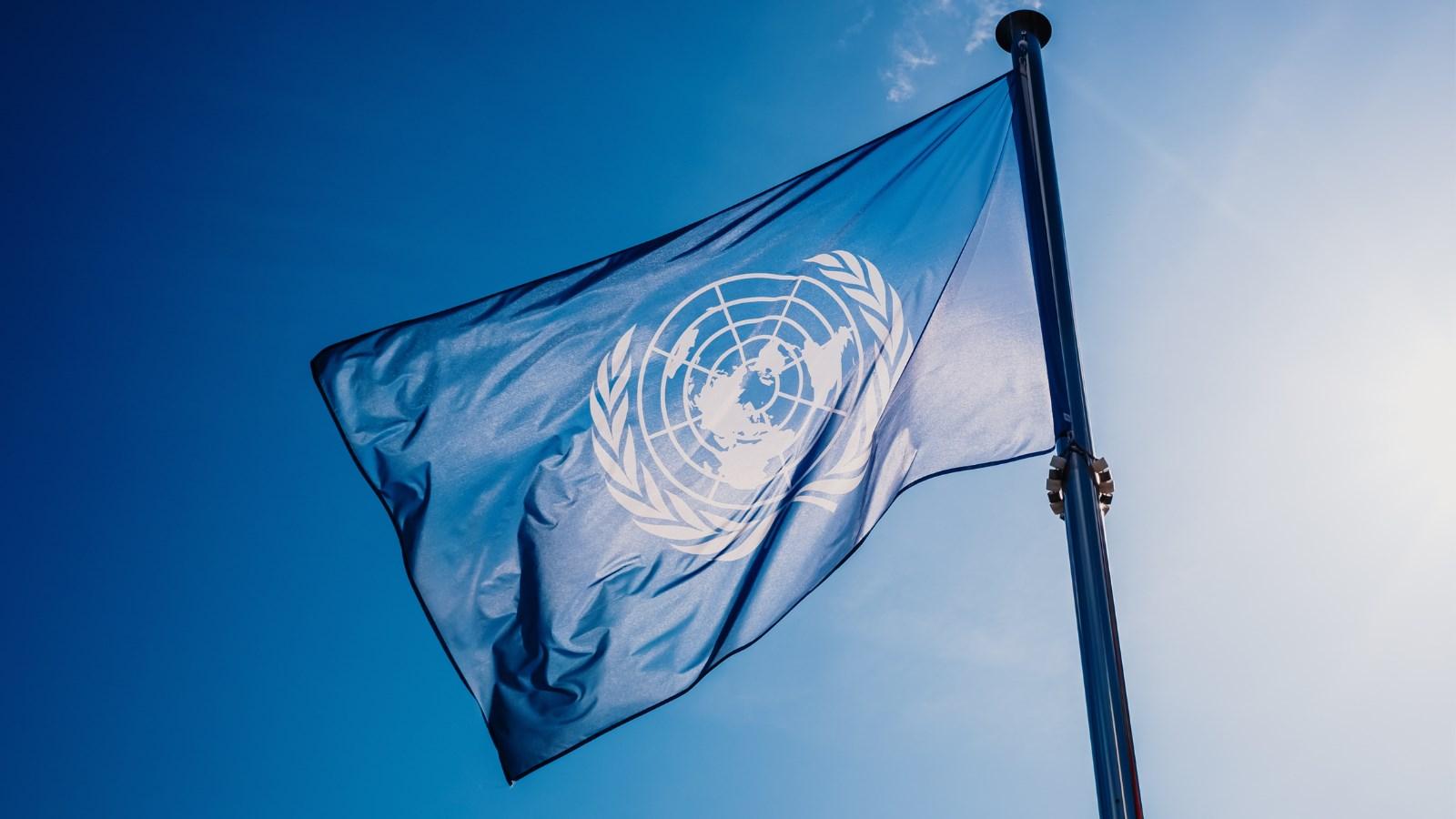
We now have encouraging precedents calling for a UNEPS in the U.S. House of Representatives (H Res 180 and H Res 213), and efforts are underway for a third.
Thankfully, millions are now active in the struggle to save the planet and succeeding generations. Many have also mobilized in resistance to more war and higher military spending. But it seems unlikely that peace will prevail or that war and armed conflict will be
prevented simply from popular resistance or calls for cuts.
Buckminister Fuller once stated, “you never change things by fighting the existing reality. To change something, build a new model that makes the existing model obsolete.” The proposed UNEPS is such a new model to solve multiple problems. A UN Emergency Peace Service is no panacea or cure all, but a powerful new approach to help solve real problems. And, it might be a game changer if “we the people” step up, pull together, and give the idea a boost. With so many shared global emergencies, it’s time to give peace another chance.
32
Democracy in Decline?
By Joseph Preston Baratta
Democracies throughout the world have been giving way to autocracies and nationalist movements in the last 15 years, as many people think. President Biden has announced a global struggle between democracy and autocracy. The United States and its allies (including Canada) are pitted against Russia and China and a few other revanchists. Freedom House, which tracks such trends, finds that the growth of freedom (not of democracies) after the end of the Cold War and the dissolution of the U.S.S.R. in 1991 began to reverse in 2006.
In an alarming report of Freedom in the World in 2021, Sarah Repucci and Amy Slipowitz cite such signs of widening autocracy as expansion of authoritarian rule, increased resort to military force, heavy jail sentences, torture, and murder of beleaguered activists, human rights abuses in mainland China, demolition of Hong Kong’s liberties and legal autonomy, wars in Ethiopia and Azerbaijan, Hindu nationalism in India, malfeasance of former President Trump, insurrection in Washington, and racial injustice in the U.S.A. They see a growing threat to institutional safeguards, civic norms, and the promise of democracy’s core principles.
However, a longer term historical view of the actual growth since 1900 of democracies (republican states with elected legislatures), as opposed to monarchies and tyrannical states, shows that the story is not nearly so grim. According to Our World in Data, in 1900 there
Joseph Baratta PhD is emeritus professor of history and political science at Worcester State University. Joseph is the author of the two volume historical work, The Politics of World Federation (2004) and is cofounder of the Center for Global Community and World Law.

was one democracy (presumably the U.S.A.) and 112 autocracies. Democracies grew in numbers comparatively as the 20th century wore on 17 versus 132 at the start of World War II in 1939, and 99 democracies vs. 80 autocracies in 2018, after the breakup of the U.S.S.R. The crossover point was about 1995, when democracies began to outnumber autocracies. Data from the Pew Research Center after 1946 confirms this pattern. Pew finds that mixed systems (democracies perverted by authoritarian leaders) crossed over the line with autocracies about 1995. By 2017, the number of democracies was 57, that of autocracies 13, and mixed polities 28.
We should remember that, historically, democracy has been a slow growth. England took over 600 years to establish democracy, reckoning from the first caucus of knights and burgesses outside the Great Council in the reign of Edward I (1295) to the Parliament Act ending the power of the House of Lords to veto legislation (1911) and the Representation of the People Act (1918). Canada took 140 years, judging from the British Constitutional
33
Act (1791), which gave the colony a government with an appointed governor, executive council, legislative council, and popularly elected assembly. Independence as a Dominion was granted by the British North American Act (1867), and all dependence on the British Parliament ended with the Act of Westminster (Commonwealth, 1931). The United States of America took 200 years, dating from the Mayflower Compact (1620), through the Revolution and drafting of the U.S. Constitution, to full democracy (ending of property requirements for voting) at the election of Andrew Jackson (1828).

A historical perspective helps us to appreciate the Theory of Change of Democracy Without Borders (2021), which was partly inspired by the ideal of world federalism. DWB predicts the democratization of Russia and China after about 2030. In order to come to grips with our immense global problems, there has to be even a tentative timetable, and Citizens for Global Solutions and Democracy Without Borders deserve respect for daring to do so.
But last year, the military and diplomatic maneuvers of Vladimir Putin to end the threat of NATO expansion into Ukraine were not so evident, and one of these years China may attempt by force to bring Taiwan back into the Empire under the Mandate of Heaven. Then there may be some other upset of foreign relations like North Korea’s testing of ICBMs that can reach California, or demonstrated acquisition of nuclear weapons by Iran in the troubled Middle East.
I do not think democratization of Russia, situated on a vast plain open to enemies west and east, will ever by possible without some truly fair and reliable regional security system. And democratization of China seems inconceivable without a long period of adjustment by the masses to norms of individual freedom. We should not be in a hurry. Such changes, even in Western civilization, were a slow growth. We should remember the Cold War and not let “democracy” become a weapon against great powers that are adjusting to the forces of globalization.
34
We’d love to have you at our Annual Members Meeting!

The meeting will be held by both videoconference and teleconference options for attendees using Zoom. Join us October 8th, 2022 11:00am to 1:30pm Eastern Time


Join the World Federalist Movement...
Name:
Email: Address:
Postal Code: becoming a member

Contributor $200

Household $90
Individual $60
Limited Income $15
Membership in the World Federalists entitles you to receive the bulletin Mondial, and to membership in the international World Federalist Movement Institute for Global Policy.
Or by making a one-time donation
WFM Canada c or World Federalist Foundation c (tax receipt at year end)
Card
Signature:

Or by making a monthly donor
You can authorize us to make automatic monthly deductions from your bank account or credit card. You can change or cancel your monthly plan donations any time, by phone, or e mail.
Choose one of: WFM Canada or □ World Federalist Foundation (tax receipt at year end) Choose your monthly gift: $100 $50 $20 $15 $10 or $_________
Name: _________________________________
Signature: _____________________________
Date: _______________________________
Please include an unsigned blank cheque marked “VOID” along with this form, or provide credit card information. VISA MasterCard AMEX Exp:
Card No: _______________________________
Signature: ______________________________
Please PO Box 4022, K1S 5B1. Or donate online at www.WFMCanada.org
Your donations keep us going

The World Federalist Movement Canada (WFMC) provides a context where individuals committed to world community can meet, learn, advocate and support the changes needed to progressively shape a more peaceful, democratic and just world legal and political der. WFMC and its sister organization, the World Federalist Foundation (WFF) receive no ongoing financial support from government. on donations from individual Canadians to sustain the organization and its programs. You can donate online or by mail (c/o PO Postal Station E, Ottawa ON K1S 5B1). Monthly Plan. Many world federalists find that small monthly contributions are an easie convenient way to support world federalism, by authorizing WFMC or WFF to make automatic deductions from your bank account or card on a monthly basis. You can change or cancel your monthly plan donations at any time, by phone, fax or email. Instructio www.wfmcanada.org
World Federalist Movement Canada
PO Box 4022, Postal Station E
Ottawa ON 5B1
___________________________ By
…
–
…
□ VISA □ MasterCard □ AMEX Exp: ____ /____
No: ________________________________
______________________________
…
□
□
□
□
□
□
□
□
□
□
____ /____
mail this form with payment to WFMC at:
Postal Station E, Ottawa ON
K1S
www.WFMCanada.org Fall 2022
